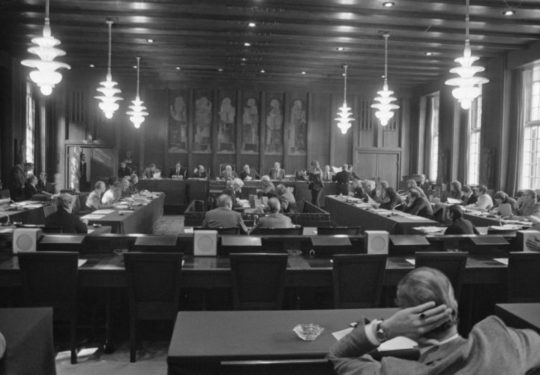Dutch municipalities and provinces should urge their suppliers to release their democratic information as open data. These are voting results, minutes, televised meetings, questions, motions, bills and finances of the city council and States-Provincial. Earlier the Open State Foundation has conducted research on the availability and accessibility of this information on websites of municipalities and provinces. The conclusion of this research was that the information was absent or hard to find. Releasing the decision-making information as open data would increase the transparency of municipal and provincial politics.
By: Tom Kunzler

Policy, decisions, decrees, agendas, reports and other public documents of Dutch public administration, so called basic democratic information, should be made easily-accessibly and in a coherent manner according to the Council for Public Administration (Rob). The research of the Open State Foundation revealed that many municipalities did not publish individual voting lists, this makes it hard to track the decisions of representatives. Furthermore, the information is not accessible in coherency.
Coherency of information
With coherency we mean the following. Imagine, I am a citizen of the municipality of Lingewaard and the city-administration wants to connect the area to a neighboring city with a trolley bus and overhead wires need to be placed in your street. If I want to know more about the decision-making process or I want to prevent the placement of those overhead wires in my street it’s hard to find every document concerning this topic. It would come in handy if there was a file with all documents in chronological order and with information on how to influence the decision-making process.
This coherency not only makes the municipality more transparent for its inhabitants, but also for their own representatives. The Dutch municipalities are responsible for more funds this year because of the decentralizations of responsibilities in the social domain. This requires a stronger information position for the city councilors so that they can control the executive power in the municipality. Coherency gives them this stronger position and also makes it possible to compare the situation with the situation in other municipalities. Maybe a municipality in another province has a very innovative solution to a similar political problem.
Track record for representatives
As a voter and inhabitant I want to track what my representatives are doing in my district. What is their voting behavior, are they present during meetings, what were their contributions and how many of their motions passed? Open data makes a personal track record per party or representative possible. This not only gives inhabitants insight in the work of their representatives, but also gives the press a tighter grasp on local politics. The representatives can also use the information to share their successes and non-active representatives can be spotted easily.
Open decision-making
Every municipality and province presents the information differently. Some of them include the voting results in the minutes, the list with decisions or in a designated document. Most local governments hire a supplier to process and publish their information. By Dutch law municipalities and provinces are obliged to publish their list of decisions, they can decide if and how they publish the rest of the information on their website.
Publishing basic democratic information as open data gives way to more transparency and easier participation. The coherency can be realized by adding uniform features (metadata) to the data. This makes it possible to make automated categories, a track record per representative and party and to compare situations between different local governments.
Apps for local democracy
The best thing about open decision-making data is unlimited opportunity, because everyone can access and re-use this data. The data should be made available in a standardized manner en findable at data.overheid.nl. Thanks to the metadata the files will be computer-readable and developers are able to build apps with the information. In this way developers have the opportunity to build apps bottom up, apps that give insight in local democracy. For example an app that sends you a push-message when something in your neighborhood is part of a new bill or policy.
To give inhabitants the opportunity to comprehend what their representatives are doing, change is needed. The current maze of different and non-compatible systems is undermining transparency and participation in the decision-making process.
This articled is an edited and translated version of an article that was published in OD Magazine in 2014.
